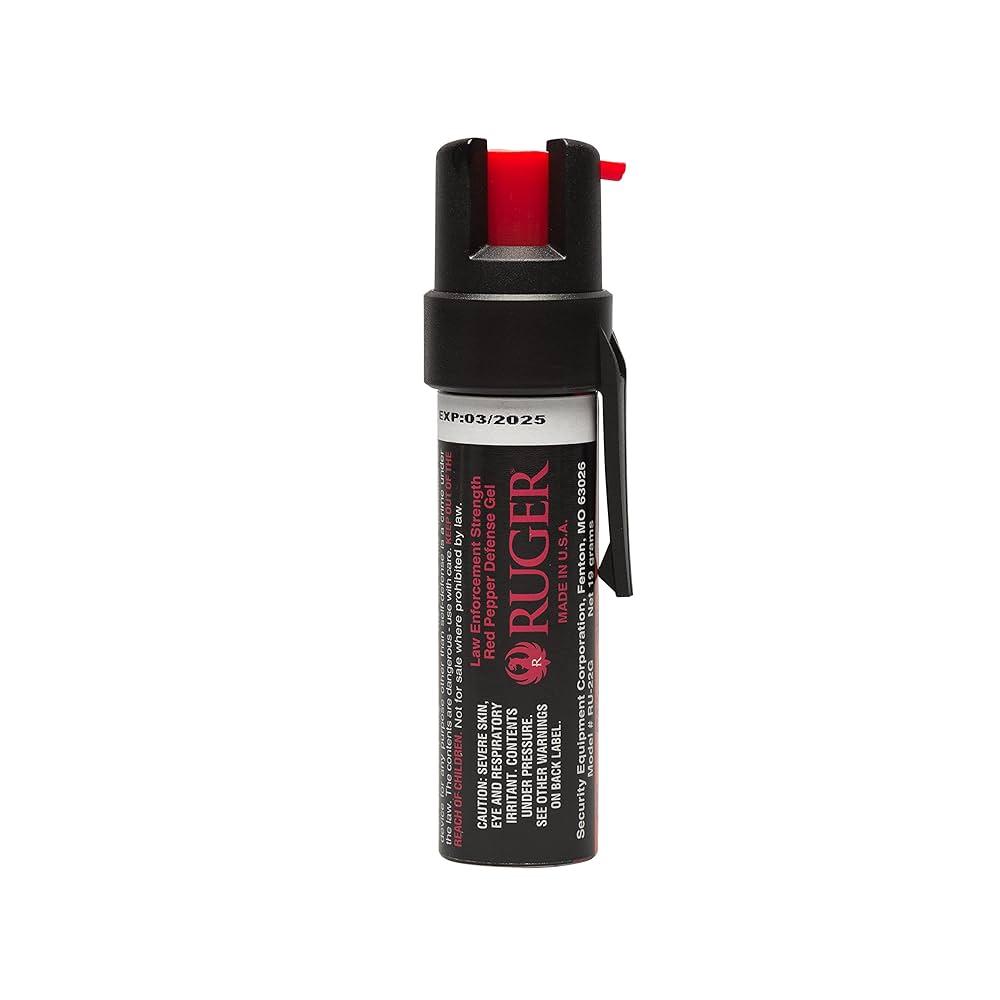Table of Contents
- Legal Regulations Governing Pepper Spray Possession in Vehicles
- State-by-State Variations and Compliance Requirements
- Safe Storage Practices for Pepper Spray Inside Cars
- Practical Recommendations for Carrying Pepper Spray Legally and Responsibly
- Key Takeaways
Legal Regulations Governing Pepper Spray Possession in Vehicles
Carrying pepper spray in your vehicle is subject to specific legal guidelines that vary significantly depending on your jurisdiction. Typically, laws regulate not only the possession but also the type, quantity, and accessibility of the pepper spray stored in cars. In many areas, the device must be kept in its original packaging or locked container to prevent unauthorized access or accidental discharge. Moreover, some states or countries impose restrictions on the size or concentration of the pepper spray, limiting how much you can carry at a time.
Understanding the nuances of these regulations is crucial for ensuring compliance and avoiding penalties. Common legal requirements may include:
- Age restrictions for legal possession (commonly 18 years or older)
- Restrictions on carrying pepper spray in commercial vehicles or public transport
- Clear labeling and safety instructions on the product
- Prohibitions against using pepper spray offensively or outside of self-defense scenarios
Before keeping pepper spray in your vehicle, it’s advisable to consult local laws or official resources to confirm what is permissible. Compliance not only helps protect your legal rights but also promotes responsible and safe use of personal defense tools.
State-by-State Variations and Compliance Requirements
When it comes to carrying pepper spray in vehicles, laws can differ substantially depending on the state. Some states impose strict quantity limits on how much pepper spray you can have in your car, while others regulate the concentration of active ingredients. For example, a few states require that the spray container must not exceed a certain size, typically around 2 to 3 ounces. Additionally, some jurisdictions stipulate age restrictions or require users to carry permits. Being aware of these specific constraints is crucial to avoid unintended legal trouble.
Key compliance factors to consider include:
- Maximum allowed container size and active ingredient concentration
- Age limits for possession and usage
- Prohibition or restrictions in certain locations, like schools or government buildings
- Registration or permit requirements for carrying pepper spray in some states
Always consult your state’s official guidelines and local law enforcement resources before transporting pepper spray in your vehicle. Keeping updated with any legislative changes ensures that you remain within the boundaries of the law while staying prepared for personal safety.
Safe Storage Practices for Pepper Spray Inside Cars
When it comes to storing pepper spray in your vehicle, safety and accessibility must be balanced carefully. Ideally, the pepper spray should be kept in a cool, dry place away from direct sunlight or extreme heat, as high temperatures can degrade the spray’s effectiveness or even cause the canister to rupture. Avoid leaving it in easily reachable areas that could tempt unauthorized access, especially if children or unauthorized passengers may enter the vehicle. The glove compartment or center console often provide practical storage spots, but be mindful that these areas can get quite hot during summer days.
To ensure your pepper spray is both secure and accessible in emergencies, consider these smart storage tips:
- Use a dedicated holster or container designed for pepper spray to prevent accidental discharge.
- Keep it within arm’s reach but not visible from outside the vehicle to deter theft.
- Regularly check the expiration date and condition of the canister.
- Store it in a spot where you can quickly grab it without fumbling around, such as under the driver’s seat or attached discreetly to the door panel.
Practical Recommendations for Carrying Pepper Spray Legally and Responsibly
To ensure you carry pepper spray both legally and responsibly, always start by checking your local regulations, as laws vary widely by state and municipality. Many jurisdictions impose restrictions on the size, concentration, and even the type of pepper spray allowed. It is essential to carry only approved formulations and quantities, typically under 2 ounces for civilian use. Additionally, storing the spray in an easily accessible but secure location inside your vehicle-such as a glove compartment or center console-can help you comply with safety laws while ensuring it’s ready for use in emergencies.
Beyond legal compliance, responsible handling means treating pepper spray as a serious safety tool, not a weapon for casual use. Never brandish or use it unless you genuinely face a threat; indiscriminate deployment can lead to legal consequences and harm to innocent bystanders. Educate yourself on the proper way to deploy it, including distance and aiming techniques, and consider carrying your spray alongside a compact first aid kit and a reliable phone charger to maximize overall safety preparedness on the road.
- Verify local laws regarding size, concentration, and carrying locations.
- Store securely in your vehicle but easily accessible during emergencies.
- Use only when necessary; avoid casual use to prevent legal trouble.
- Practice deployment to ensure effectiveness and safety.
- Combine with other safety tools for comprehensive protection.
Key Takeaways
In summary, while pepper spray can be a valuable tool for personal safety, it’s crucial to understand the legal boundaries surrounding its carriage in vehicles. Laws vary widely depending on your location, and staying informed ensures you remain compliant and avoid potential legal issues. Always check the specific regulations in your state or country before keeping pepper spray in your car, and use it responsibly and only in situations that warrant self-defense. Staying safe starts with staying informed.Check Our Other Blogs
- StunGun – Your Trusted Source for Stun Guns, Laws, and Self-Defense Tips
- PepperSprayLaws – Your Trusted Resource for Pepper Spray Information
- StunGunLaws – Your Trusted Guide to Stun Gun Legality and Safety




